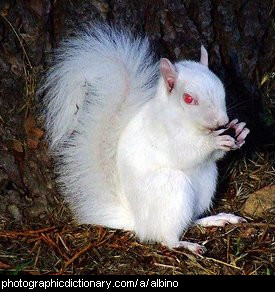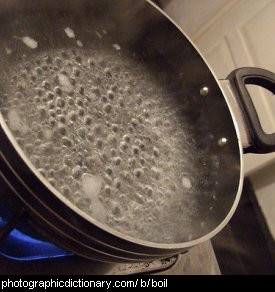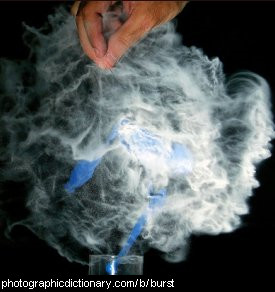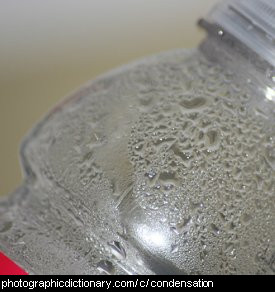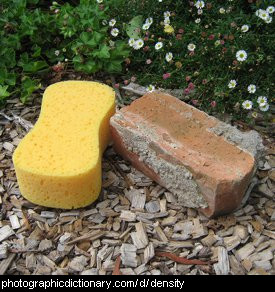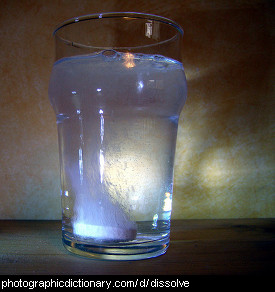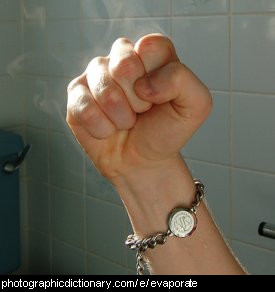An animal is albino if it is missing the brown pigment in their skin and hair that would otherwise make them a normal color. Albino animals are usually pure white with pink or pale blue eyes. Albino animals don't usually live very long in the wild as they do not camouflage very well. Albino and white animals are also prone to sunburn. Albino rabbits are very common as pets. The albino in the picture is a squirrel.
Video: view
Cis forCondensation
You dissolve a solid in a liquid by mixing the solid around until it seems to disappear. Once the solid is completely dissolved, the resulting solution behaves exactly like a liquid. Solids won't dissolve in any liquid, they must be soluble in them. For example, table salt is soluble in water but not in oil.
Solids that do not dissolve in a liquid but are mixed into a liquid can be removed with a filter. Filtering is an effective way to remove very fine particles of dirt from water.
An echo is reflected sound. You get echos most often in enclosed spaces with hard walls, like an empty room with wooden floors, or the inside of a large concrete pipe like in the picture. If you make a noise in a place like this, the noise you make sounds like it is being repeated back at you again and again, getting quieter each time.
Eis forElectricity
Electricity is the flow of charged particles through a conducting material, usually copper. Electricity is used for a huge variety of things today, with virtually all modern devices powered by it.
Electricity is used to make many common things around you work, such as your refrigerator, modern watches, computers and phones.
Electricity can be stored inside a battery to be used later.
You may also be interested in static electricity or lightning, two other effects of electricity.
Evaporation is the process of a liquid slowly turning into a gas. You see evaporation in everyday life when you hang out washing (laundry) or something else wet to dry. Evaporation happens when the molecules in the liquid get enough energy - usually from sunlight - to break through the surface of the liquid and float away. You can see the fist in the picture is steaming as the water from a hot shower evaporates away.


